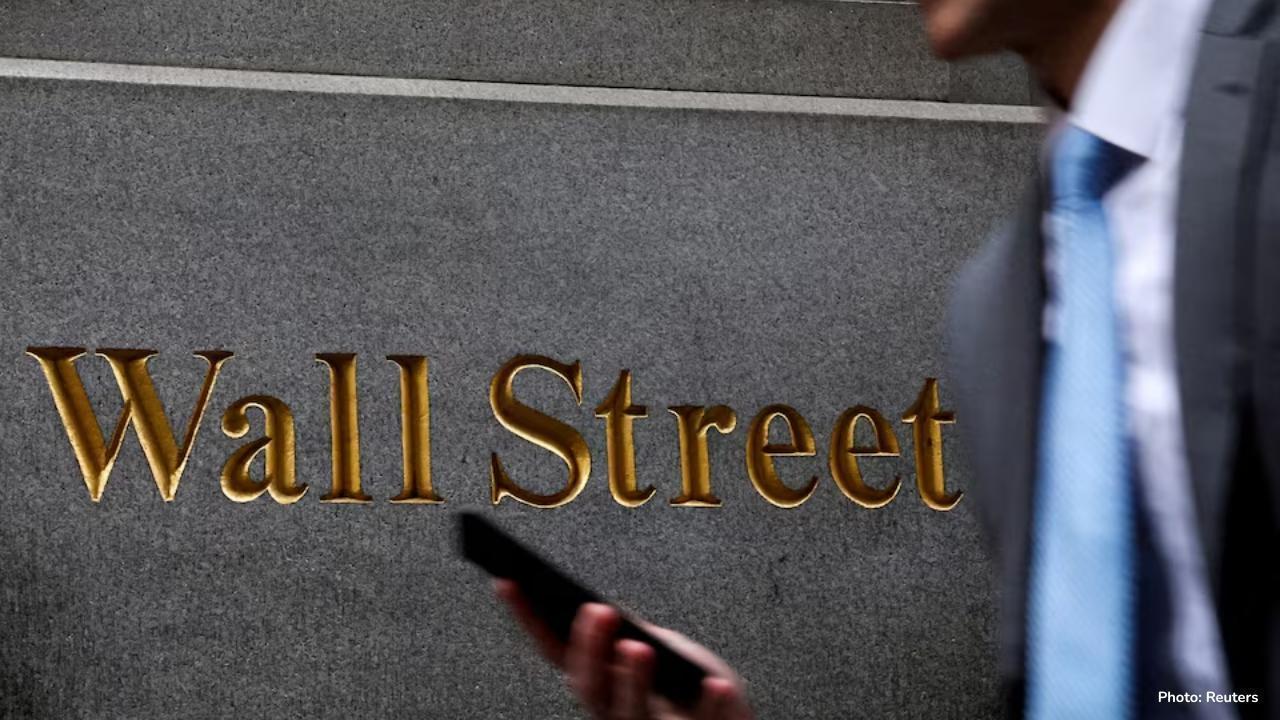
Post by : Monika
Wall Street, the financial heart of the United States, is showing remarkable strength, even as the country faces a partial government shutdown. Major stock indices, including the S&P 500, Dow Jones Industrial Average, and Nasdaq, are trading near record highs.
This resilience is surprising to some because government shutdowns are usually associated with economic uncertainty. Shutdowns can delay important reports about the job market, inflation, and consumer spending. These reports are critical because investors, companies, and the Federal Reserve rely on them to make decisions.
However, many market watchers and analysts believe that strong corporate earnings, lower interest rates, and overall confidence in the U.S. economy are helping Wall Street remain steady.
What Is a Government Shutdown?
A government shutdown happens when Congress fails to pass the budget or a temporary funding bill for the federal government. When this happens, many federal agencies are forced to stop non-essential operations. Some federal workers may not be paid temporarily, and programs like economic data collection, visa services, and national parks may be closed.
The current shutdown began on October 1, 2025, due to disagreements between lawmakers on federal spending levels. One of the immediate impacts is the delay of key economic reports, including the September jobs report, which provides crucial information about employment trends, wages, and job creation.
Impact on the Stock Market
Even though a shutdown creates uncertainty, the stock market has not been heavily affected so far. In fact, many stocks are trading near record levels. This trend indicates that investors are focusing on long-term economic fundamentals rather than short-term political issues.
Key reasons for this resilience include:
Strong Corporate Earnings: Companies in technology, healthcare, finance, and consumer goods are reporting better-than-expected profits. Investors see these results as signs that businesses are performing well despite political challenges.
Federal Reserve Interest Rate Cuts: The Federal Reserve recently cut interest rates, which makes borrowing money cheaper for both companies and consumers. Lower interest rates can lead to more investment, spending, and economic growth, which in turn supports the stock market.
Investor Confidence: Many investors believe the shutdown will end soon. Historically, the U.S. stock market tends to recover quickly after temporary political disruptions.
Why Investors Are Optimistic
Despite the shutdown, optimism remains high on Wall Street. Analysts point to several reasons:
S&P 500 Performance: The S&P 500, which tracks 500 of the largest U.S. companies, has gained 14% year-to-date. This growth shows strong market momentum and positive investor sentiment.
Earnings Growth: Expectations for third-quarter earnings have risen to 8.8%, indicating that companies are performing well. Good earnings give investors confidence that businesses can withstand short-term political challenges.
Economic Stability: Even without some government reports, other indicators such as consumer spending, retail sales, and corporate investment remain strong. This suggests the economy is resilient and capable of growth despite a temporary shutdown.
Global Investment Environment: International investors are still attracted to the U.S. market due to its stability, liquidity, and potential returns compared to other countries with slower growth or political uncertainty.
The Role of the Federal Reserve
The Federal Reserve, the central bank of the United States, plays a crucial role in maintaining economic stability. One of its tools is setting interest rates. Recently, the Fed cut interest rates to encourage borrowing and investment.
Lower interest rates reduce the cost of loans for businesses and individuals. Companies can invest more in expansion, research, and hiring. Consumers may borrow more for homes, cars, or education. This increased spending supports economic growth and boosts stock prices.
The Fed’s decision to reduce interest rates has been well-received by the market. Investors see it as a positive sign that economic growth will continue, even if political challenges like a shutdown occur.
Corporate Earnings Drive Market Confidence
When companies perform well, investors are more likely to buy their stocks, pushing prices higher. This trend has helped keep Wall Street near record highs despite the government shutdown.
Delayed Economic Data: The shutdown has caused delays in important reports like the jobs data and inflation numbers. Without this information, investors may find it harder to make informed decisions.
Political Uncertainty: Ongoing disagreements in Congress could prolong the shutdown or cause additional delays in policymaking. Uncertainty about government spending and fiscal policy can affect market confidence.
Global Economic Concerns: International factors, such as trade tensions, geopolitical conflicts, or slower growth in other major economies, could also impact U.S. markets.
Despite these risks, analysts believe the strong fundamentals of the U.S. economy will continue to support the market in the medium and long term.
Investor Strategies During a Shutdown
During periods of political uncertainty, investors often adjust their strategies to protect their investments and take advantage of market opportunities. Common approaches include:
Economic Implications of a Shutdown
However, because the private sector continues to operate normally and consumer confidence remains relatively high, the overall impact on the economy is expected to be limited if the shutdown is brief.
Historical Perspective
Market Outlook
Analysts expect that Wall Street will continue to perform well in the coming weeks:
Fourth Quarter Growth: Historically, the fourth quarter of the year is a period of strong market performance. Analysts expect this trend to continue, supported by holiday spending and corporate investments.
Earnings Reports: As companies report third-quarter earnings, investors will have clearer information on corporate performance and growth prospects.
Resolution of Shutdown: Once Congress reaches an agreement and government operations resume, delayed economic reports will provide more clarity, further supporting market stability.
Overall, despite the short-term uncertainty, the U.S. stock market is positioned for continued growth.
Even in the face of a government shutdown, Wall Street remains resilient, with major indices trading near record highs. Strong corporate earnings, Federal Reserve interest rate cuts, and investor confidence have helped the market maintain momentum.
While the shutdown has temporarily delayed important economic data and created some uncertainty, the underlying fundamentals of the U.S. economy remain strong. Historical trends suggest that short-term political disruptions have limited impact on long-term market growth.
Investors are keeping a close eye on corporate earnings, economic indicators, and the resolution of the shutdown. In the meantime, diversification, long-term focus, and cautious investment strategies are helping investors navigate the situation.
As the shutdown continues, market participants are hopeful that political negotiations in Washington will soon bring a resolution, allowing the release of delayed economic data and further strengthening market confidence.










NBA Friday Recap: Powerhouse Wins for Miami, LA, Milwaukee, and Clippers
Miami, LA Lakers, Milwaukee, and Clippers triumphed in a thrilling NBA Friday, showcasing standout p

Doncic Shines with 49 Points in Lakers' 128-110 Victory over Timberwolves
Luka Doncic dazzles with 49 points as the Lakers secure a 128-110 win against the Timberwolves, show

Kings Triumph Over Jazz 105-104 with Last-Minute Sabonis Effort
The Sacramento Kings edged out the Utah Jazz 105-104, with Domantas Sabonis making the decisive shot

Argentina's Friendly Match Against India Delayed, New Date to be Announced
The friendly match between Argentina and India in Kochi has been postponed due to FIFA approval dela

Rohit and Kohli Conclude ODI Journeys in Australia with a Victory
Rohit Sharma and Virat Kohli bid adieu to Australian ODIs with a final win, forming a 168-run partne

George Russell's Wrestling Mask Antics at Mexican Grand Prix
George Russell donned a wrestling mask to enjoy the Mexican Grand Prix from the stands, providing a